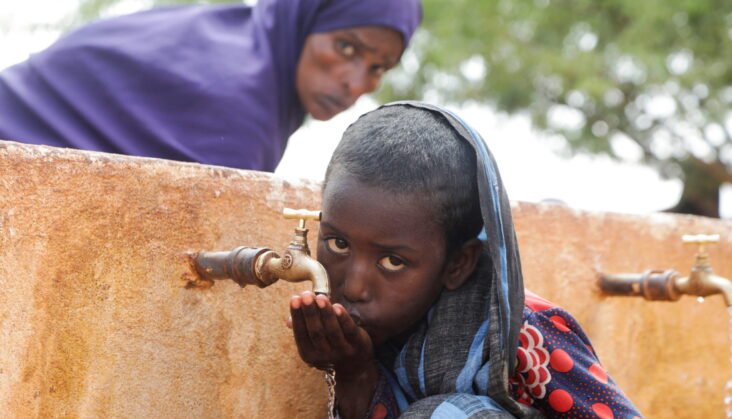[ad_1]
According to the AP, there have been at least 448 deaths this year at malnutrition centres in the country. This makes Somalia’s drought the worst in 40 years as the Horn of Africa continues to be plagued by famine.
The World Food Programme (WFP) reported that an estimated 7.1 million Somalis – nearly half the population – face severe levels of food insecurity.
In 2011, a drought in the country killed 250,000 people. Deputy Special Representative of the Secretary-General and Humanitarian Coordinator for Somalia Adam Abdelmoula tweeted yesterday: “At the UN Spokesperson briefing, I said we can’t wait for a formal declaration of famine in Somalia to act – by then, it’ll be too late.”
1) At the @UN_Spokesperson‘s briefing, I said we can’t wait for a formal declaration of #famine in #Somalia to act – by then, it’ll be too late. In 2011, #drought led to the deaths of 250,000 people, partly because we were slow to act. We must not allow that to happen again. pic.twitter.com/mIj9vjcaIf
— Adam Abdelmoula (@adam_abdelmoula) June 7, 2022
The region has not seen substantial amounts of rain since 2020, and has since been hit hard by the Covid-19 virus – the country has the seventh-highest case fatality ratio globally. Instability from decades of war and locusts and flooding has left the country vulnerable to any and all threats to security, leaving many to evacuate to urban areas where food comes at a higher price.
The global community must ‘widen its gaze from the war in Ukraine” to better focus on Somalia.’
Cost of living crisis
Due to the ongoing war in Ukraine, the global cost of living has been impacted, as food and fuel prices are on the rise. According to the World Bank, this will cause “potentially harmful consequences for middle- and low-income economies alike”.
Fuel shortages have impacted everyone from motorists to radio stations as many have clambered together to attempt to purchase jet fuel as diesel becomes increasingly unaffordable and scarce.
As a direct result of rainy season failures and the Ukraine war, the cost of life-saving therapeutic food that UNICEF uses to treat children with severe acute malnutrition is projected to rise by 16 per cent globally over the next six months.
The price of a kilo of rice has shot up from $0.75 to $2. Cooking oil has more than doubled, with three litres rising from $4.50 to $9.50.
Region hit hard
On Tuesday, UNICEF said to Reuters that the global community must “widen its gaze from the war in Ukraine” to better focus on Somalia.
“Developing economies will have to balance the need to ensure fiscal sustainability with the need to mitigate the effects of today’s overlapping crises on their poorest citizens,” said Ayhan Kose, Director of the World Bank’s Prospects Group.
The World Bank has slashed its annual forecast for global economic growth, warning that some countries, particularly East Africa are facing major recession because of the combination of war and covid-19.
It said there was a real risk that stagflation – a combination of high inflation and low growth – could return for the first time since the 1970s.
Speaking to the BBC, the bank’s head, David Malpass, said some developing countries were facing “ballooning debt”, with governments unable to purchase goods.
A recent situation report by the UN Office for the Coordination of Humanitarian Affairs warns of a worsening crisis. The report mentions a lack of coordination, information gaps, and “urgent unmet needs” by UN partners. It reads, “With no significant rains foreseen and the gu’ season having failed, the drought emergency is likely to deteriorate further.”
[ad_2]
Source link
